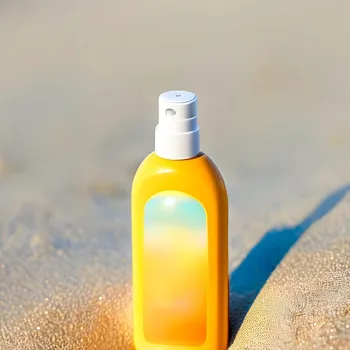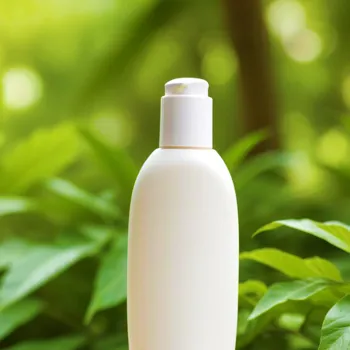Unveil the secrets of SPF for radiant skin protection in the Indian sun. Discover why SPF is a must-have all year round
The Indian sun, while a welcome sight after the monsoon, can be quite harsh on our
skin. We all love that golden glow, but prolonged exposure without protection can lead to sunburn, premature aging, and even increase the risk of skin cancer. That's where SPF, or Sun Protection Factor, comes in.

It's not just a summer essential; it's a year-round necessity, especially in our sunny country. But what exactly is SPF, and how do you choose the right one for your skin? Let's break it down in simple terms.
SPF measures sunscreen's UVB protection, not 100% effective
SPF is basically a measure of how well a sunscreen can protect your skin from UVB rays, the kind of radiation that causes sunburn. Think of it as a shield against those harmful rays. The higher the SPF number, the more protection it offers.

For instance, SPF 30 blocks about 97% of UVB rays, while SPF 50 blocks around 98%. It's crucial to understand that no sunscreen can block 100% of UVB rays.
That's why it's important to use sunscreen in combination with other sun-protective measures, like seeking shade and wearing protective clothing. Remember, SPF is your first line of defense against the sun's harmful effects.
Choose SPF based on activity level & skin type for sun protection
Choosing the right SPF can feel like navigating a maze of numbers and labels. But don't worry, it's simpler than it seems. For daily use, especially if you spend a lot of time indoors, an SPF 30 is generally sufficient.
However, if you're planning to be out in the sun for extended periods, like at the beach or while playing sports, opt for SPF 50 or higher. Consider your skin type as well. People with fair skin are more sensitive to the sun and should always use a higher SPF.
Also, look for "broad spectrum" on the label, which means the sunscreen protects against both UVB and UVA rays, the latter contributing to premature aging. Remember to reapply your sunscreen every two hours for continuous protection.
Proper sunscreen application is key for skin protection
Applying sunscreen correctly is just as important as choosing the right SPF. Most people don't apply enough, rendering the sunscreen less effective. A good rule of thumb is to use about a teaspoon of sunscreen for your face and neck, and about an ounce (a shot glass full) for your entire body.

Don't forget commonly missed areas like your ears, the back of your neck, and the tops of your feet. Apply sunscreen at least 15 to 30 minutes before going outside to allow it to fully absorb into your skin.
And remember, sunscreen needs to be reapplied every two hours, especially after swimming or sweating. Making sunscreen application a part of your daily routine is key to protecting your skin.
Wear sunscreen daily for protection from UV rays, rain or shine
Don't be fooled into thinking that sunscreen is only needed on sunny days. Even on cloudy days, up to 80% of the sun's harmful UV rays can penetrate the clouds. That's why it's essential to wear sunscreen every day, regardless of the weather.

UV rays can also reflect off surfaces like water, sand, and snow, increasing your exposure. So, even if you're in the shade, you're still getting exposed to UV rays. Make sunscreen a non-negotiable part of your daily skincare routine, just like brushing your teeth.
Consider using a moisturizer or makeup product that already contains SPF for added convenience.
Sunscreen tech advances for various skin types; find suitable type for daily use
Sunscreen technology has come a long way. There are now sunscreens formulated for different skin types and concerns. If you have oily skin, look for oil-free or gel-based sunscreens to avoid clogged pores.

For dry skin, opt for moisturizing sunscreens that contain ingredients like hyaluronic acid or ceramides. If you have sensitive skin, choose mineral sunscreens containing zinc oxide or titanium dioxide, as they are less likely to cause irritation.
There are also tinted sunscreens available that can provide a light coverage while protecting your skin from the sun. Finding the right sunscreen that suits your skin type will make it more likely you will use it every day and that is key for healthy skin.
Regular SPF use benefits health, prevents aging, lowers skin cancer risk
Using SPF on a regular basis is not just for aesthetic reasons, but is very impactful for your health. The long-term benefits of sunscreen use goes beyond preventing sunburn.
By protecting your skin from UV damage, you're helping to reduce your risk of premature aging, which manifests as wrinkles, age spots, and loss of elasticity. More importantly, regular sunscreen use significantly lowers your risk of developing skin cancer, one of the most common types of cancer.
Protecting your skin today is an investment in your health and appearance tomorrow. Make SPF a part of your everyday life for a healthier, happier you.
Choose high SPF for skin protection, tailored to your needs
The final piece of advice is to choose products with high SPF to always keep your skin in good condition. In general, SPF 30 is sufficient but in areas with a lot harsher sun rays, SPF 50 or higher should be used instead. It is all about finding the right routine and products that are right for you.























